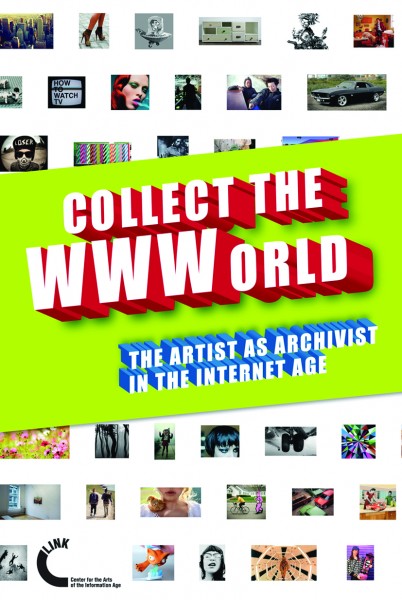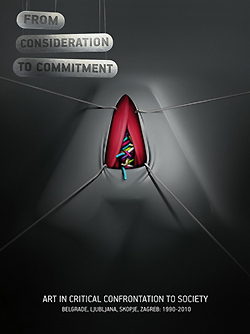Paul Graham: Hackers & Painters: Big Ideas from the Computer Age (2004)
Filed under book | Tags: · floss, hacker culture, hacking, internet, programming, software

We are living in the computer age, in a world increasingly designed and engineered by computer programmers and software designers, by people who call themselves hackers. Who are these people, what motivates them, and why should you care?
Consider these facts: Everything around us is turning into computers. Your typewriter is gone, replaced by a computer. Your phone has turned into a computer. So has your camera. Soon your TV will. Your car was not only designed on computers, but has more processing power in it than a room-sized mainframe did in 1970. Letters, encyclopedias, newspapers, and even your local store are being replaced by the Internet.
Hackers & Painters: Big Ideas from the Computer Age, by Paul Graham, explains this world and the motivations of the people who occupy it. In clear, thoughtful prose that draws on illuminating historical examples, Graham takes readers on an unflinching exploration into what he calls “an intellectual Wild West.”
The ideas discussed in this book will have a powerful and lasting impact on how we think, how we work, how we develop technology, and how we live. Topics include the importance of beauty in software design, how to make wealth, heresy and free speech, the programming language renaissance, the open-source movement, digital design, internet startups, and more.
Publisher O’Reilly Media, Inc., 2004
ISBN 0596006624, 9780596006624
258 pages
Review (Slashdot.org)
PDF (updated on 2014-9-14)
Comments (2)Domenico Quaranta (ed.): Collect the WWWorld: The Artist as Archivist in the Internet Age, catalogue (2011) [English/Italian]
Filed under catalogue | Tags: · archive, art, internet art, net art, surf club, tumblr, web

“The last decade has seen an incredible growth in the production and distribution of images and other cultural artefacts. The internet is the place where all these cultural products are stored, classified, voted, collected and trashed. What is the impact of this process on art making and on the artist? Which kind of dialogue is going on between amateur practices and codified languages? How does art respond to the society of information? This is a book about endless archives, image collections, bees plundering from flower to flower and hunters crawling through the online wilderness.”
With works by Alterazioni Video, Kari Altmann, Cory Arcangel, Gazira Babeli, Kevin Bewersdorf, Luca Bolognesi, Natalie Bookchin, Petra Cortright, Aleksandra Domanovic, Harm van den Dorpel, Constant Dullaart, Hans-Peter Feldmann, Elisa Giardina Papa, Travis Hallenbeck, Jodi, Oliver Laric, Olia Lialina & Dragan Espenschied, Guthrie Lonergan, Eva and Franco Mattes, Seth Price, Jon Rafman, Claudia Rossini, Evan Roth, Travess Smalley, Ryan Trecartin.
Includes texts by Josephine Bosma, Gene McHugh, Joanne McNeil, Domenico Quaranta.
Publisher LINK Editions, Brescia, September 2011
Creative Commons Attribution-NonCommercial-ShareAlike 3.0 Unported License
ISBN 9781447839491
160 pages
PDF, PDF (15 MB, updated on 2016-8-19)
Comment (1)From Consideration to Commitment: Art in Critical Confrontation to Society (Belgrade, Ljubljana, Skopje, Zagreb: 1990-2010) (2011) [multiling]
Filed under book | Tags: · 1990s, 2000s, art, art criticism, contemporary art, croatia, ex-yugoslavia, macedonia, serbia, slovenia, video art

The publication explores practices of critical contemporary fine arts – practices of research, progressive and experimental actions by contemporary fine artists from the 1990s to the present, in four countries in the region – Croatia, Macedonia, Serbia and Slovenia. These are practices which focus on issues such as identity aspects (national, cultural, religious, ethnic), workers’ rights, social integration of minorities, global market fluctuation trends and its impact in the local context, unscrupulousness of capital, the position of women, spatial devastation, art institution system issues, and many others.
The publication maps out and theoretically reviews critical and research practices, and contemporary fine arts practices oriented towards the contemporary civilization moment, which have been active in the context of the independent cultural scene since the 1990s, but which have also been present in the institutional frame. The authors provide only drafts of the political, social, economic and cultural changes of the local contexts, through four segments, due to a lack of space. Each segment focuses on the practices and context of a given country, i.e. the capital as the primary focus, and in addition to the introductory word by the authors, it includes interviews (with authors, theorists, curators, organizers…) who contribute to the recording of these artistic practices based on their experience, work and knowledge.
The segments deal with the Belgrade, Ljubljana, Skopje, and Zagreb scenes. All the authors devised their approaches in an effort to present the fruitful and creative production of these cities, to the greatest extent possible.
Contemporary visual art is discussed through the works and experiences of Igor Grubić, Sanja Iveković, Andreja Kulunčić and Darko Šimičić (Croatia), Stevan Vuković, Milica Tomić, Danilo Prnjat and Živko Grozdanić Gera (Serbia), Neven Korda, Marko Peljhan, Marija Mojca Pungerčar and Maja Smrekar (Slovenia), and Bojan Ivanov, Zoran Poposki, Mira Gakina and Žaneta Vangeli (Macedonia).
The book was conceived as a multilingual publication in English, in addition to the local languages (Croatia, Macedonian, Serbian and Slovenian).
Realized as part of the project Let’s Talk Critic Arts.
Editorial Board: Dušan Dovč, Vesna Milosavljević, Jasna Soptrajanova and Dea Vidović
Authors: Jasna Jakšić – in cooperation with Tihana Bertek, Maja Gujinović, Ana Kovačić, Srđan Latreza, Petra Novak, Tina Novak, Tamara Sertić and Leda Sutlović (Croatia); Nebojša Vilić (Macedonia); Miha Colner and Nika Grabar (Slovenia); Vesna Tašić – in cooperation with Vesna Milosavljević and Miroljub Marjanović (Serbia)
Publishers: SEEcult.org in cooperation with ForumSkopje; Kurziv – Platform for Matters of Culture, Media and Society; SCCA, Center for Contemporary Arts – Ljubljana / Artservis; The Association of NGOs Clubture
Published in April 2011, Belgrade, Ljubljana, Zagreb, Skopje
611 pages
This work is made available by the Creative Commons Licence Attribution-NonCommercial-ShareAlike 3.0 Unported unless not stated differently.

